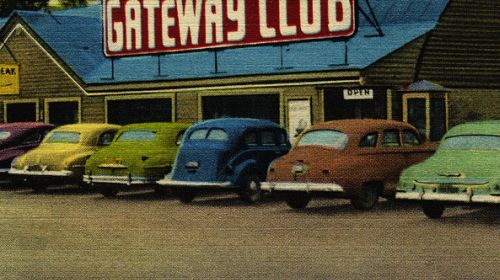DEA Planned to Monitor Gun Show Attendees With License Plate Readers, New Emails Reveal


The Drug Enforcement Administration and the Bureau of Alcohol, Tobacco, Firearms and Explosives collaborated on plans to monitor gun show attendees using automatic license plate readers, according to a newly disclosed DEA email obtained by the ACLU through the Freedom of Information Act.
The April 2009 email states that “DEA Phoenix Division Office is working closely with ATF on attacking the guns going to [redacted] and the gun shows, to include programs/operation with LPRs at the gun shows.” The government redacted the rest of the email, but when we received this document we concluded that these agencies used license plate readers to collect information about law-abiding citizens attending gun shows. An automatic license plate reader cannot distinguish between people transporting illegal guns and those transporting legal guns, or no guns at all; it only documents the presence of any car driving to the event. Mere attendance at a gun show, it appeared, would have been enough to have one's presence noted in a DEA database.
Responding to inquiries about the document, the DEA that the monitoring of gun shows was merely a proposal and was never implemented. We were certainly glad to hear them say this, as we had rationally, based on the scrap of information left unredacted in the document, concluded that gun show monitoring was underway. After all, this would not be the first time that the government has used automatic license plate readers to target the constitutionally protected right to assemble. In 2009, the Virginia State Police, in collaboration with the Secret Service, recorded the license plates of vehicles attending President Obama’s inauguration, as well as campaign rallies for Obama and vice presidential candidate Sarah Palin. And unfortunately our security agencies — yesterday and today — have shown a pattern of engaging in systematic surveillance of peaceful assembly.
The DEA’s statement alleviates some concerns, but if the program was cancelled, why didn’t we get any documents reflecting that decision in response to our FOIA request? The agency should now release such documents, and also create and release a written policy that it will not target First Amendment-protected activity in the future.
While in general we have not opposed the use of ALPRs for their stated purpose of checking plates against "hot lists" of known or suspected lawbreakers — provided the data on everyone else is not retained — we have serious concerns about using the technology in a way that is specifically targeted at people exercising their constitutionally protected rights.
In 2012, the ACLU filed public records requests in 38 states and Washington, D.C. seeking information about the use of automatic license plate readers. Our July 2013 report, You Are Being Tracked, summarized our findings. But the ACLU also filed FOIA requests with federal agencies, including the DEA.
Automatic license plate readers must not be used to collect information on lawful activity — whether it be peacefully assembling for lawful purposes, or driving on the nation's highways. Without strong regulations and greater transparency, this new technology will only increase the threat of illegitimate government surveillance.

